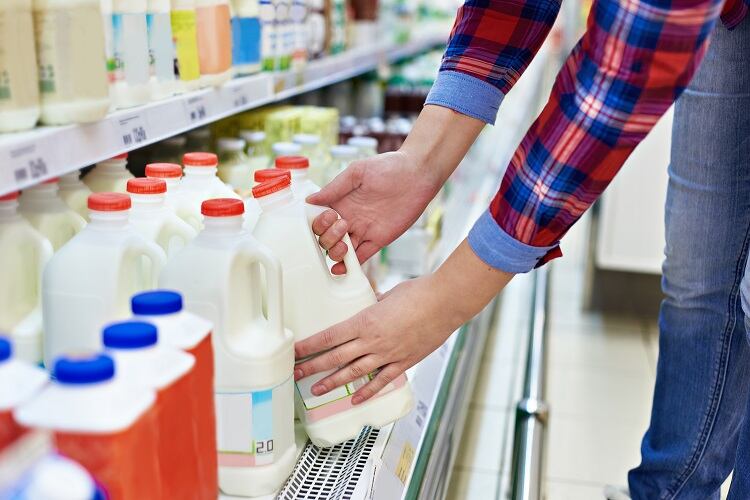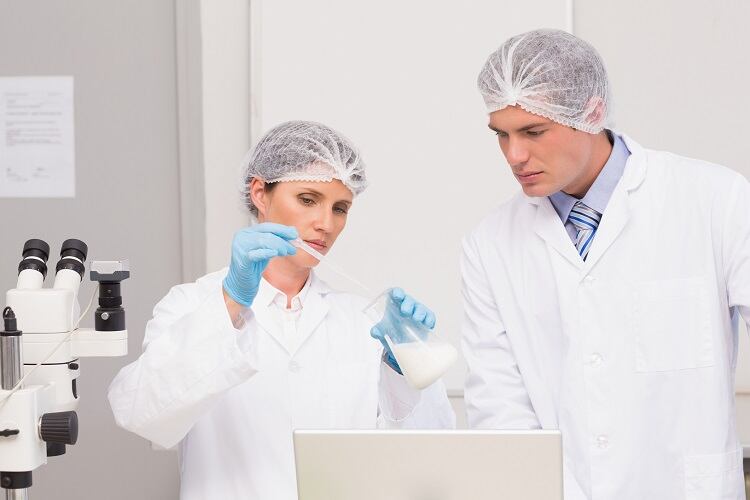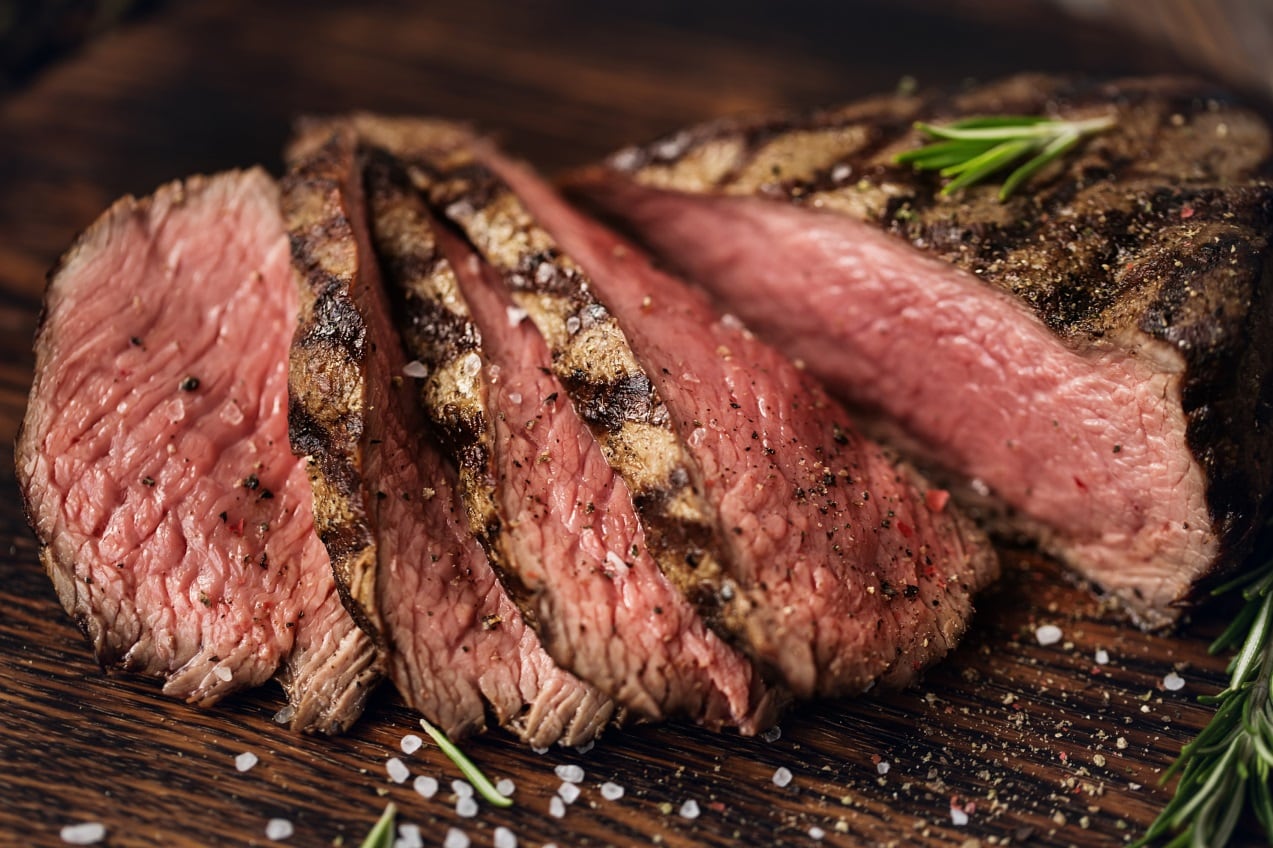Ten years ago, the dairy aisle looked very different to how it does today. While soymilk was readily available, and other plant-based offerings were entering the category, dairy alternatives had yet to truly hit the mainstream.
Market research data highlights just how far the dairy-free alternatives category has come. Back in 2010, Innova Market Insights valued the global market for plant-based dairy alternative drinks, for example, at $7.4bn. In 2019, Grand View Research estimated plant-based beverages to be valued at $12.4bn.
According to Tim Geistlinger, Chief Scientific Officer at animal-free dairy start-up Perfect Day, the dairy aisle still has a long way to go. Gazing into his crystal ball, Geistlinger predicts that by 2030, animal-free dairy will have spread beyond its assigned aisle, into products all around the supermarket.
Cow-free dairy at scale
Perfect Day is on a mission to ‘create a kinder, greener tomorrow’ by developing new ways to make food, according to Geistlinger. It’s about changing the process, and not the food, he told delegates at the Reformulate: Fermentation-Enabled Alternative Protein Innovation Digital Summit this week.
For now, that means disrupting the traditional dairy sector with dairy proteins made from microbes, rather than cows. The California-headquartered start-up adds DNA sequences to its microbes, which then go on to produce the proteins and fats found in milk.

Instead of creating finished products itself, Perfect Day is favouring a B2B approach, the CSO explained. “We make individual proteins and scale them up to the point where they become a massive supply chain for industry.”
Geistlinger continued: “We could make our own products, and we certainly do to some capacity, but it’s really about unlocking the opportunity…when we’re making a cheese or a yoghurt.”
The goal is, undoubtedly, global disruption. For Geistlinger, this means ‘going big’. “We’re manufacturing at large scale. You want to be truly disruptive, you don’t want to be some boutique thing that’s just disruptive in [one] geography. You want to do this on a global scale.”
The B2B model appears to be working for Perfect Day so far, having signed supply agreements with ice cream makers including Smitten Ice Cream and Graeter’s Ice Cream. Perfect Day spinoff The Urgent Company has also rolled out animal free dairy products under its Brave Robot brand.
Changes in the dairy aisle…
Geistlinger is well placed to predict the future of animal-free categories, having held the post of Vice President of R&D at Beyond Meat and Chief Technology Officer at Perfect Day prior to his current role.
By 2030, just nine years from now, the CSO believes the dairy aisle will look quite different, he told delegates.
“Alternative dairy has been around for a while. If you look at soy, hemp, pea, or oat, there is always a different alternative dairy product coming out.
“But they’ve been limited to milk…replacements. There has been less work on…yoghurts and cheese and ice creams…because it’s a different challenge that has [yet] to be achieved.”
For Geistlinger, a key moment of growth in the dairy alternative space came with the entry of Danone North America-owned Silk into the refrigerated aisle – right next to conventional milk.
Silk sells a range of dairy substitute products made from soy, coconut, cashew, and almond.
“Consumers could do a direct comparison between the two,” Geistlinger recalled. “And then you had a lot of other players jumping in on that in the wake of Silk.”
One key issue for Perfect Day’s CSO, when it comes to plant-based dairy alternatives, is their functionality. There is no one all-purpose dairy alternative, he elaborated.
“They’re all different, they’re sold for different things. Some people like the milk for drinking straight, some like a different one for pouring in their coffee, some for different food applications. And none of them really…work for all applications.”

This is where Geistlinger sees change on the horizon: predicting evolution in the functionality of dairy alternatives. What will this ‘dramatic improvement’ look like? In the future, the CSO said consumers will be able to buy just one product and use it to ‘make anything that grandma makes’, from flan to whipped cream.
“You’re also going to see the same thing across cheeses and ice creams and everything else that is considered to be dairy,” he told delegates. “That should be a pretty consistent change…and actually it will be pretty fast.”
And beyond the dairy aisle…
Perfect Day’s CSO is particularly excited about the transformation these developments will encourage in other categories beyond the dairy aisle.
Dairy proteins, such as whey and casein, are used in a wide range of food applications outside of dairy. “Those proteins are used across the food aisle to make products healthier…but also for the functionality side of things,” Geistlinger explained. “And that’s going to change too.”
The CSO predicts a move towards plant-based solutions disrupting products ‘across the aisle’, whether that be in baked goods or meat replacements.
Concerning the plant-based meat sector, Geistlinger also expects this market to grow as the balance between hardcore meat-eaters, flexitarians, vegetarians and vegans shifts. “Today, we have a vegetarian population of around 10%, flexitarians are probably around 30%, and I think that’s all going to switch.
“I think you’re going to see the hardcore carnivores moving to about 10% of the population over the next 15 years, where the majority of people will be flexitarians and are, for the most part, eating non animal-based products.”
Tailored nutrition
As scientists learn more about different proteins, and how to implement them, Geistlinger said greater health benefits and ‘tailored nutrition’ will be unlocked.
“We’re going to learn more and more about the different opportunities out there for creating different proteins and solving different kinds of problems.”
The CSO continued: “There is so much we don’t know about the role that different proteins are playing, about your ability to make them, what would happen if you put them into a food product, [and] how that would boost nutrition.”
What Geistlinger is sure of, is that these proteins will be better for both human and planetary health. “I think where the world is moving is towards tailored nutrition, so that all food products will just be better,” he said, such as the potential for improved digestibility of foods.
“It’s a pretty exciting time to be a scientist and to have access to platforms like this. There’s no limit to what we can do.”




